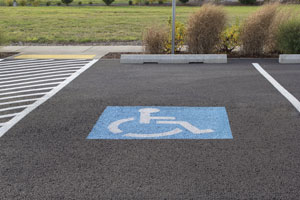What Benefits Are Your Survivors Able to Recover?
 In New Jersey, after a job-related injury, you can apply for disability and medical benefits under the state’s workers’ compensation system. If your injury keeps you from working, either temporarily or permanently, you’ll be able to pursue disability benefits, either for the time you are out of work, for a set period of time (if your injury is permanent), or even for the rest of your life, in certain situations. But what happens if you are killed in a workplace accident or die from an occupational disease?
In New Jersey, after a job-related injury, you can apply for disability and medical benefits under the state’s workers’ compensation system. If your injury keeps you from working, either temporarily or permanently, you’ll be able to pursue disability benefits, either for the time you are out of work, for a set period of time (if your injury is permanent), or even for the rest of your life, in certain situations. But what happens if you are killed in a workplace accident or die from an occupational disease?
Under New Jersey law, the surviving spouse and natural children who were in a worker’s household at the time of death qualify as dependents and are entitled to receive a death benefit after a worker is killed or dies because of a work-related cause. As a general rule, the benefits will be 70% of the worker’s average weekly wage (AWW) for the past 52 weeks. That benefit amount is divided among the dependents. Other relatives or dependents may also seek death benefits, but must prove actual dependency to the workers’ compensation board. A minor child will be considered a dependent until age 18, unless in college or physically/mentally disabled, when benefits may be available for a longer period of time.
In addition, the workers’ compensation insurance company or the employer must pay up to $3,500 in burial or funeral expenses when a worker dies from a job-related cause.
Contact Us
At Taylor & Boguski, we bring more than 70 years of combined legal experience to injured workers throughout New Jersey. For a free initial consultation, contact our office online or call us at 856-200-8989.
We handle all workers’ compensation claims on a contingency basis. We won’t charge you attorney fees if we don’t recover compensation for your losses.


 When you are unable to work because of injury or illness, you can look to private or employer-sponsored disability insurance. But you are not without options if you don’t have this type of coverage. Regardless of your age, if you meet the requirements, you can receive payments under a Social Security disability insurance or Supplemental Security income claim.
When you are unable to work because of injury or illness, you can look to private or employer-sponsored disability insurance. But you are not without options if you don’t have this type of coverage. Regardless of your age, if you meet the requirements, you can receive payments under a Social Security disability insurance or Supplemental Security income claim.